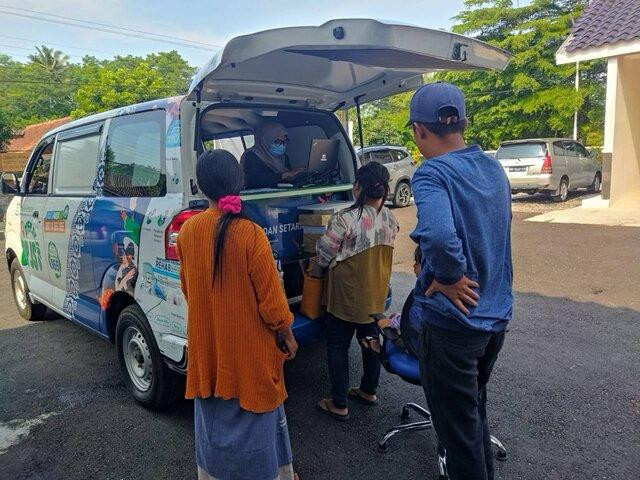Popular Reads
Top Results
Can't find what you're looking for?
View all search resultsPopular Reads
Top Results
Can't find what you're looking for?
View all search resultsSariyoso village achieves 99.87% UHC under JKN program through proper BUMDes management
Change text size
Gift Premium Articles
to Anyone
S
ariyoso village in Wonosobo District, Central Java has achieved a universal health coverage (UHC) of 99.87 percent. Of a total population of 2,251 people comprising 693 Family Cards (KK), almost all villagers are covered by the National Health Insurance (JKN) Program.
Beyond its achievement, the village’s success reflects a strong culture of community cooperation in achieving health insurance. One key factor is the management of Village-Owned Enterprises (BUMDes), where a portion of business profits is allocated to assist with JKN premium payments, ensuring the community can receive assistance without feeling burdened.
Maya Susanti, the head of the Magelang BPJS Kesehatan, expressed her appreciation for Sariyoso village's initiative, noting that it demonstrates community awareness as well as the village's success in managing local economic potential for the common good.
"This is a concrete example of how mutual cooperation can be realized in a more modern and sustainable manner. UHC can be achieved not only through individual awareness, but also through collective awareness," she said.
Maya added that the BUMDes scheme is an innovation that can be replicated in other villages, as villages can also be a driving force in ensuring the health of their residents. In this way, BUMDes transform from mere business units into social instruments that provide broader benefits.
At the same time, protection through JKN is a guarantee whose sustainability must be maintained, as the program provides certainty about healthcare costs and services so residents are not further burdened when they fall ill.
"The principle is simple: health must be maintained through healthy living behaviors, but protection remains mandatory.
That's why active JKN participation is key to ensuring people feel safe. Sariyoso has proven this," she said.
Meanwhile, Sariyoso village chief Nodi Pranowo said the achievement is inseparable from the strategies developed jointly by village officials and the community. The village administration consistently prioritizes health issues as a top agenda item in the bimonthly village meetings (musdes) and the twice-yearly village development planning meetings (musrenbang).
"One important decision is to utilize village business results through the BUMDes, where a portion of the profits is channeled to partnership programs, and the funds from there used to support residents' JKN contributions," he explained.
Village officials also ensure that residents whose JKN status has been deactivated are immediately redirected to being reactivated as independent participants.
"If a resident becomes deactivated, village officials immediately intervene, assisting with communication so that their health insurance coverage can be reactivated immediately. No resident should lose their right to health services simply because of administrative matters," he added.
Nodi expressed his hope that this near-perfect achievement could be increased to 100 percent, with Sariyoso serving as a successful example of a healthy, independent and prosperous village.
"We are proud of the 99.87 percent achievement, but our target is for all citizens, without exception, to be covered by the JKN. We will continue to protect, assist, and encourage the community to ensure that no one is left behind."










